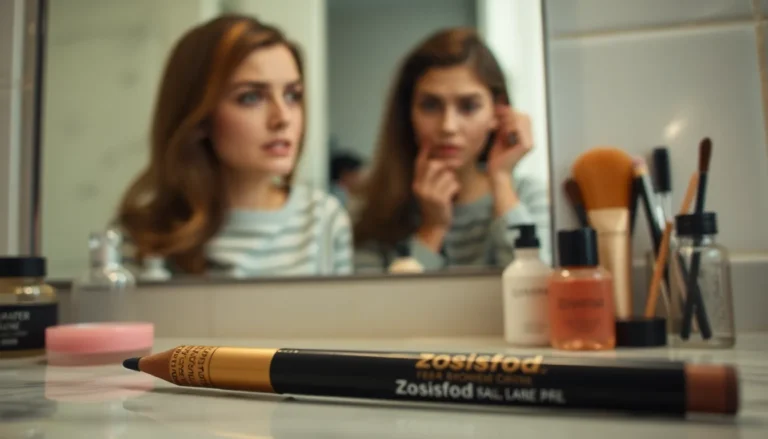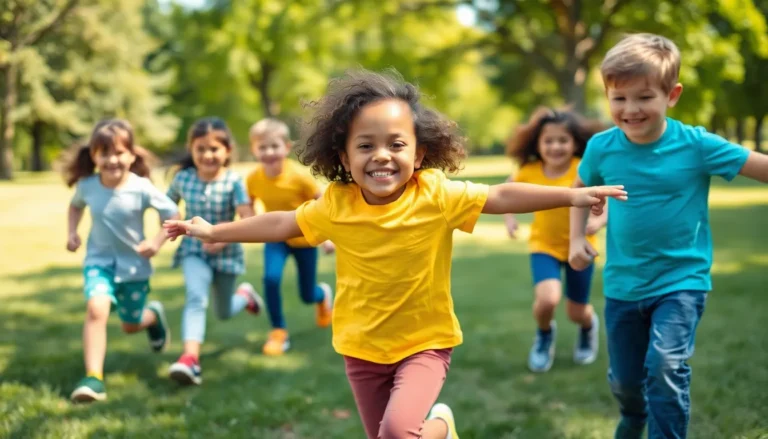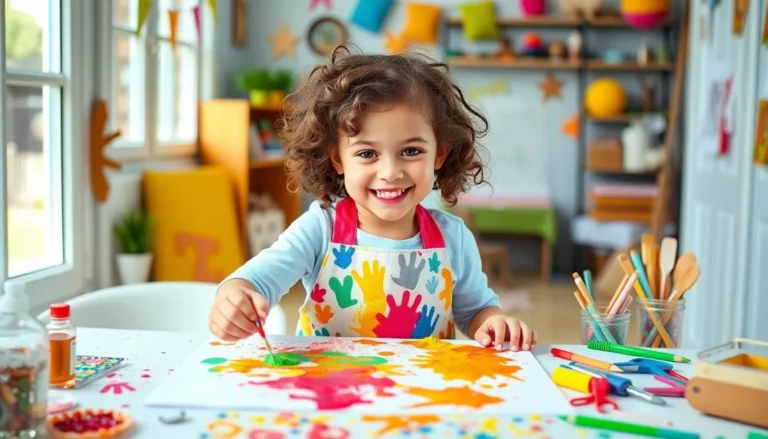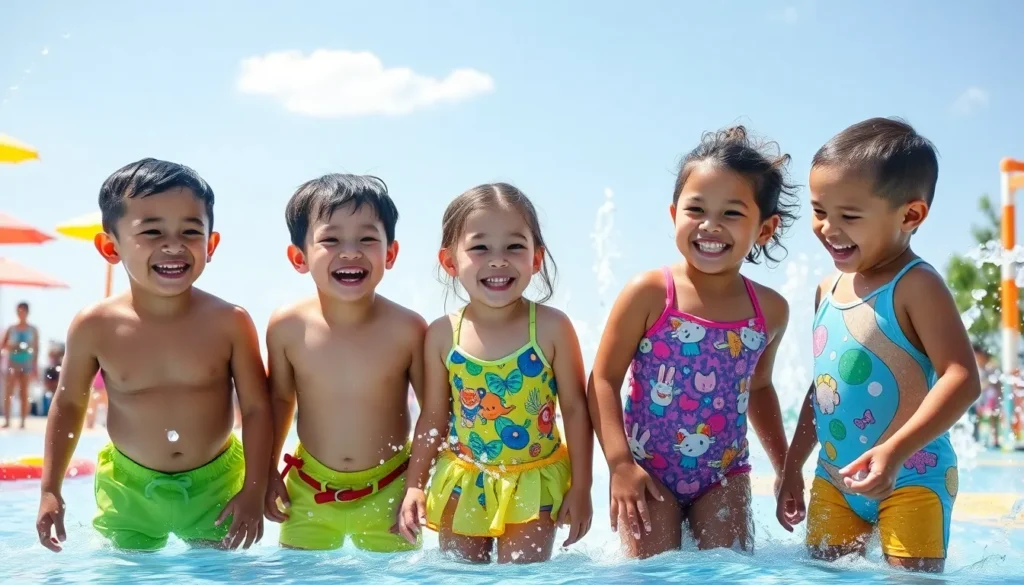Table of Contents
ToggleSplashing around in the water isn’t just for fish and mermaids; it’s a fantastic way for preschoolers to learn and play! Engaging in water activities helps little ones develop motor skills, creativity, and even a sprinkle of scientific understanding. Plus, who can resist the giggles that come with a good splash?
Imagine a sunny day filled with colorful pool toys, floating bubbles, and the joyous laughter of children discovering the wonders of water. Whether it’s a simple water table or a mini splash pad, these activities not only keep kids entertained but also promote social interaction and teamwork. Dive into the world of water fun and watch as preschoolers make unforgettable memories while learning essential skills. After all, what could be better than a day of fun in the sun?
Benefits of Water Activities for Preschoolers
Water activities offer essential advantages for preschoolers, promoting both development and enjoyment through playful engagement.
Physical Development
Engaging in water play helps enhance gross motor skills. Children practice jumping, climbing, and balancing while exploring their watery environment. Fine motor skills also improve as they pour, squeeze, and splash with different tools. Such movements refine hand-eye coordination and dexterity. Additionally, physical activity supports overall fitness and encourages healthy habits from an early age. The sensory experience of water stimulates their senses, promoting body awareness. Splashing around invites fun, creating a positive association with exercise.
Cognitive Skills Enhancement
Water play boosts cognitive ability by promoting problem-solving skills. Preschoolers learn to experiment with volume, density, and buoyancy, sparking curiosity and inquiry. Creativity flourishes as they invent games, create structures or use toys. Children practice following instructions while engaging in group activities, fostering collaboration and social skills. Additionally, language development benefits as they communicate about their play and describe their discoveries. This interactive environment nurtures critical thinking and supports a strong foundation for future learning.
Fun Water Activities for Preschoolers
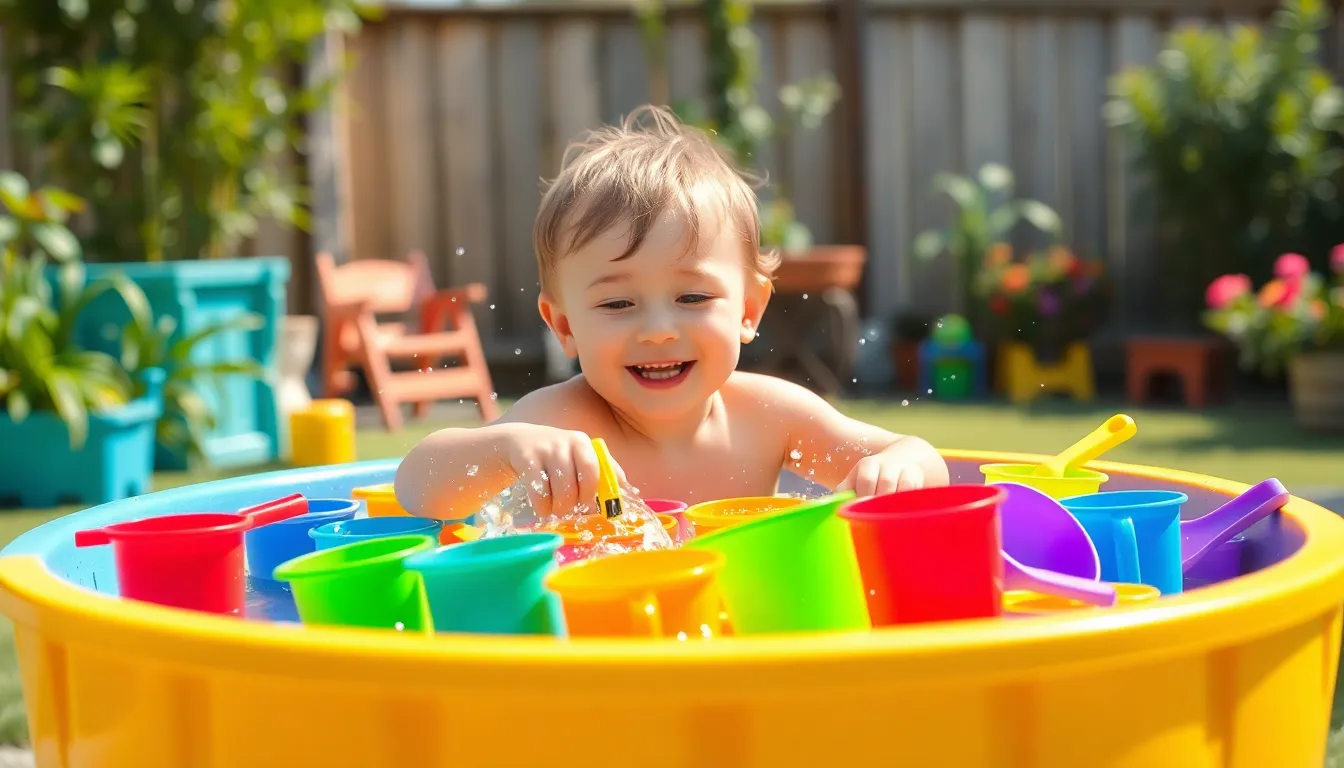
Engaging preschoolers in water activities can provide both fun and learning. Various simple ideas and creative games promote skill development while keeping children entertained.
Simple Water Play Ideas
Water tables encourage exploration. Children can pour, splash, and transfer water from one container to another. Adding colorful cups or scoops enhances sensory experiences. Splash pads offer another great option; they provide gentle sprays and streams of water for running and jumping. Using bubbles during bath time can create an enjoyable experience, too; children love watching bubbles float and pop. Additionally, painting with water on sidewalks offers a unique twist. It allows creativity while keeping children cool on warm days.
Creative Water Games
Water balloon tosses promote teamwork and coordination. Children pass balloons back and forth, aiming to avoid breaks. Relay races using cups filled with water challenge kids to carefully transport liquid from one spot to another. Setting up a mini obstacle course in a backyard with sprinkles encourages agility and fun. Another engaging game is water scavenger hunts, where children search for floating toys, providing a playful way to develop problem-solving skills. Children can also experiment with pouring colored water into clear containers, which teaches them about color mixing and volume.
Safety Precautions for Water Activities
Ensuring safety during water activities for preschoolers remains crucial. Parents and caregivers should prioritize active supervision and equipment suitability.
Supervision Tips
Active supervision significantly reduces the risk of accidents. Maintain close proximity to children during water play. Engaging a second adult for support provides additional assurance. Setting clear rules informs preschoolers of safe behavior around water. Frequent check-ins reassure caregivers of children’s safety and comfort. Keep emergency contact numbers accessible in case of incidents. Install safety nets or barriers around pools or large bodies of water.
Safe Equipment Recommendations
Choose age-appropriate inflatable toys designed for young children. Consider using life jackets labeled for specific weight ranges. Ensure that play areas are free from sharp objects or obstacles. Utilize non-slip mats to prevent falls in wet areas. Verify that all equipment is well-maintained and clean. Inspect inflatable pools for leaks and punctures before use. Selecting safe water shoes helps protect tiny feet from hot surfaces.
Encouraging Learning Through Water Play
Engaging in water play fosters essential skills while encouraging learning. Children naturally gravitate towards water, making it a perfect medium for exploration and discovery.
Science Exploration
Water play serves as an excellent platform for scientific exploration. Preschoolers can investigate concepts like buoyancy by observing objects that float or sink. Kids gain hands-on experience when they measure and pour different amounts of water, enhancing their understanding of volume. Scientific inquiry occurs with experiments involving color mixing, teaching them about primary and secondary colors. Encouraging children to predict outcomes builds critical thinking skills. Simple tasks like creating ripples or waves introduce basic physics principles in an exciting manner. Engaging them in these playful experiments promotes a love for learning.
Sensory Experiences
Water activities provide rich sensory experiences. Various textures emerge through the feel of wet sand, water beads, or foam. Kids enhance tactile perception while squeezing sponges or playing with squishy toys. Sounds accompany water play; splashes, drips, and bubbles create an auditory experience that captivates attention. Different temperatures of water can stimulate discussions on hot and cold. Additionally, colorful toys and materials draw visual interest, making playtime stimulating. Exploring sensory experiences through water builds observations and encourages descriptive language as children share their thoughts with peers. These interactions develop vocabulary and communication skills effectively.
Water activities offer preschoolers a unique blend of fun and learning. These experiences not only promote physical fitness and motor skill development but also spark creativity and scientific curiosity. Through engaging play, children build essential social skills and foster teamwork while exploring the wonders of water.
Safety remains a top priority, ensuring that these joyful moments create lasting memories in a secure environment. By incorporating a variety of water play ideas and maintaining vigilant supervision, caregivers can enrich their child’s development. Embracing water activities is a wonderful way to nurture young minds and bodies, paving the way for a lifetime of exploration and enjoyment.


